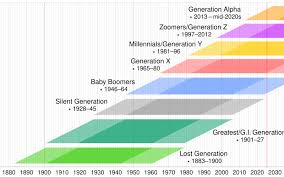The Significance of Gen Z Years in Today’s Society

Introduction
The term ‘Gen Z’ refers to the cohort of individuals born roughly between 1997 and 2012. As this generation comes of age, understanding the ‘Gen Z years’ is crucial as they represent a pivot in societal norms, technology, and culture. This generation is unique, having grown up in a rapidly evolving digital landscape, and their experiences and perspectives will shape the future in profound ways.
Characteristics of Gen Z
Gen Z is marked by their comfort with technology and social media. Unlike previous generations, they have not known a world without smartphones and the internet. Studies indicate that around 70% of Gen Z use social media as a primary source of information, significantly influencing their views on social issues, politics, and consumerism. This digital fluency allows them to communicate efficiently, but it also poses challenges such as mental health concerns and cyberbullying.
Current Trends Shaped by Gen Z
As Gen Z becomes the largest generation globally, their preferences and behaviours are driving market trends. According to a report by McKinsey, businesses are adapting their strategies to meet the expectations of these younger consumers who value authenticity and sustainability. For example, brands that engage in social activism and ethical practices are more likely to win the loyalty of Gen Z customers. Additionally, the rise of the gig economy reflects Gen Z’s desire for flexibility and self-determination in their careers.
Impact on Society and the Future
The ‘Gen Z years’ are not only significant for market dynamics but also for the political landscape. This generation is notably progressive, often championing issues such as climate action and social equality. Recent surveys indicate that over 80% of Gen Z prioritise climate change as a critical issue. As they become more involved in the electoral process, their impact on policy and change could be substantial.
Conclusion
Understanding the ‘Gen Z years’ is vital for educators, employers, and policymakers as they prepare for a future where this generation holds significant influence. Their unique perspectives, shaped by technology and global issues, can lead to transformative changes across various sectors. As we move forward, it is essential to engage with Gen Z, recognising their insights and capabilities in crafting a better tomorrow.









